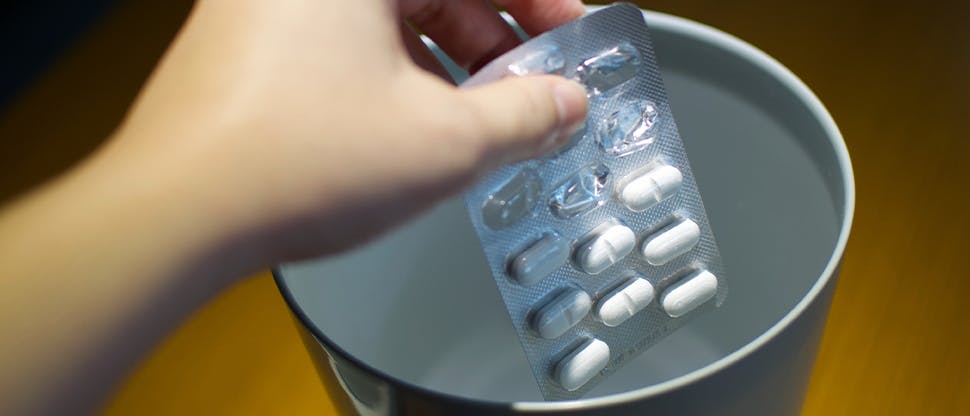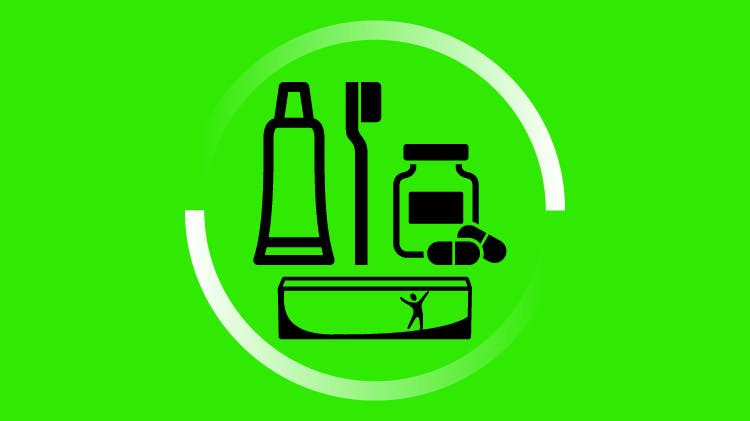
Supporting conversations about how to dispose of pain medicines correctly
Expired medicines, or those that are used, unused, or no longer needed, should be disposed of correctly, but many people are unsure about the right way to go about this.1
After using or applying pain relief medicines, disposing of them safely is the next important step – for example, to prevent others from using expired medicines accidentally, to stop them getting into the wrong hands and to protect the environment.
Medicine Disposal
To make sure old medicines end up in the right place, there are some golden rules to follow when it comes to medicine disposal. That’s why we’ve created a downloadable disposal explainer article that you can share with your patients and customers to help them appropriately dispose of their medicines. The explainer can also be used to help you answer common questions or concerns that a patient or customer may have, such as:
- What do I do with medicine that is unused or old and expired?
- Can I flush my medicine down the toilet or is it better in the garbage?
- How about returning it to my local pharmacy?
Download the medication disposal explainer article today and speak to your customers and patients about how they can dispose of their medicines safely.

Wipe off: The right way to use and dispose of topical pain relief medicine
It’s important for people to have access to a range of pain treatment options including both topical and oral medicines.
After using or applying topical pain relief medicines the right way, disposing of them safely is the next important step. Why? Pharmaceutical ingredients enter water systems because of the use of medicines to treat health conditions. As part of our actions to better understand the potential interactions between topical diclofenac and water systems, we have carried out studies2 looking at the impact of wiping hands using a paper towel or tissue after applying a topical diclofenac medicine3,4 - rather than immediately washing them.
The results of these studies show that wiping hands before washing can reduce topical diclofenac in rinse water by up to 70%,2 providing evidence that promoting wiping of hands before washing by people using topical diclofenac medicines could go a considerable way to reducing the amount of diclofenac found in wastewater.
To support your and your patients understanding of the correct way to use and dispose of topical pain relief medicines, we’ve created a resource with more information about the study results. Download here today.
For further information about the disposal of medicines in Canada, you can visit https://www.canada.ca/en/health-canada/services/safe-disposal-prescription-drugs.html
Lets treat it right.
Everyday OTC medicine and pain support for you and your patients
Patient care resources for pain relief management
Access educational resources to share with your patients, to help them have a better understanding of their pain condition.
Products
Find out how our treatments can help your patients manage their acute pain and/or fever.

